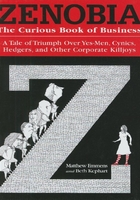
1
MAKE OF THE UNKNOWN AN ADVENTURE
There was, to begin, no apparent way up. The doors of the elevators had been sealed long ago. The stairs zinged this way and that, crossed over and through, circled back and endlessly in. Some enterprising soul had thrown a ladder up, but it was perched at a delirious angle. Someone had tried to launch a lavender kite, but its tail sagged sadly around the balustrade. There were precarious rope bridges tethered across the atrium. There were tunnels threaded east and also north. There were doors that were locked, there were rooms with no lights, there were windows blackened over, sealed shut. Hardly ever did the old phones ring. At Zenobia there was trouble.
“Excuse me,” Moira said, for she was new to this place and she had only just now made her way from her car, across the moat, to the guard at the turnstile. “How do I find room 133A?” She was wearing red shoes and a neat woolen dress. She was thinking about something her sister once said: No one has ever seen a black hole straight on. The evidence has forever been entirely indirect. Moira always remembered her sister’s best instructions at opportune times, for her sister was an astronomer who knew darkness as well as light.

“Room 133A?” repeated the guard, after mulling the question for a surprising stretch. “Room 133A follows 132B and precedes 135C. And just for the record, there’s no 134 nor, to my knowledge, a 135A or B. But that last part is just between you and me,” he said, lowering his voice. “Tell no one that I told you.”
Moira pushed her round glasses up the bridge of her nose, flipped back her bangs, and took in the scene—the ropey overpasses and crooked stairs, the forlorn kite tail, the smudge-colored tunnels. Arrows pointed in a thousand directions, but there was no way of divining their meaning. For whom had those arrows been hung and painted? Moira wondered. And when? It seemed to her to be some kind of code, the sort of thing a lucky archeologist might find in a prehistoric cave.
“But which way,” Moira said, hoping to be clearer this time, “might I go to find room 133A?”
“I’ve told you enough,” the guard said sulkily, as if he’d been asked that question a thousand times before. “Much more than enough for one day.”
Moira glanced at her watch. It was 8:10. The classified ad that had brought her to this place had presented but two key instructions: find room 133A and arrive no later than 9:00 a.m. That was it—no interview, no references, no vetting of her credentials—just a time and a room number. She had recently left a job that had bored her to tears. She had promised herself an adventure. This sounds appealingly odd, she had said to herself. But odd is one thing, somewhat mild. Zenobia, so far, was quite strange. Nevertheless, she boldly entered—through the turnstile, straight into the atrium.
“Thanks for your help,” Moira told the guard, and, reluctantly, he buzzed her in. Taking a left, Moira started walking. This would be, she decided, like finding her way through the night. And she had practice at that, the sort of grit that comes from years of persevering. She had, with glasses on, the keenest pair of eyes. She could see through mess and muddle. She could see what wasn’t there.